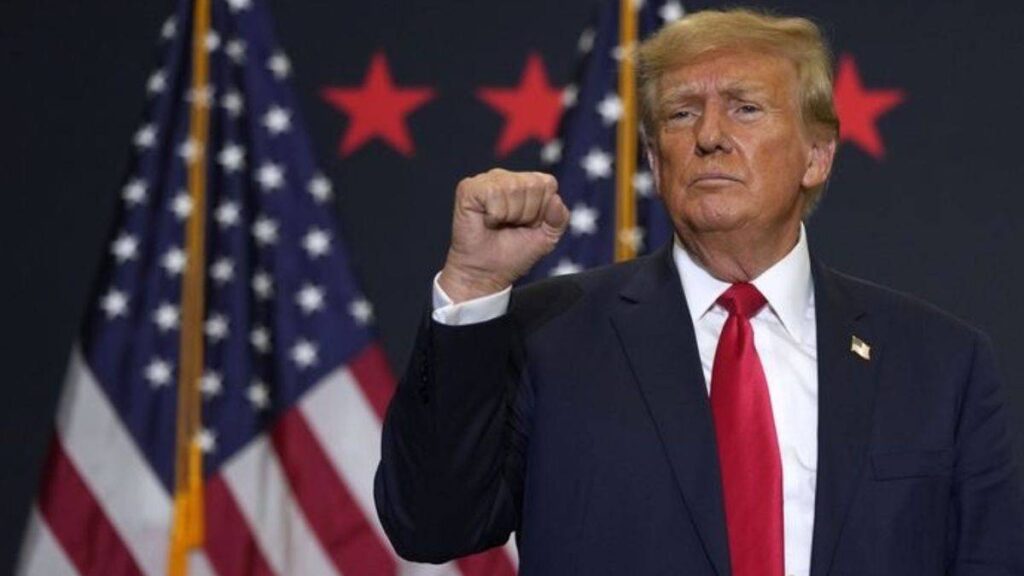
On Monday, the Supreme Court delivered a unanimous ruling stating that states lack the authority to disqualify former President Donald Trump from the 2024 election ballot.
This decision overturned a previous ruling by a Colorado court, which deemed Trump ineligible for office due to his involvement in the Jan. 6, 2021, Capitol attack.
The high-stakes decision in Trump v. Anderson, delivered without the customary courtroom session, arrives just a day before Colorado voters are set to participate in the Super Tuesday primaries.
The heart of the dispute lay in the Colorado Supreme Court’s ruling in December. The court found Trump ineligible to run based on Section 3 of the 14th Amendment, which bars individuals engaged in insurrection from holding office.
ALSO READ: Trump’s Mar-a-Lago Residents Raises Eyebrows Over Shady Guest List
Trump appealed to the Supreme Court. He argued that the state’s decision would disenfranchise millions of voters. It could also disrupt the electoral process if other states followed suit.
“We conclude that States may disqualify persons holding or attempting to hold state office,” the Supreme Court’s unsigned opinion says. “But States have no power under the Constitution to enforce Section 3 with respect to federal offices, especially the Presidency.” The Supreme Court did not weigh in on whether Trump had engaged in an insurrection.
Trump celebrated the ruling on his social media platform, hailing it as a “BIG WIN FOR AMERICA!!!” However, the Justices unanimously rejected Trump’s contention that the President is exempt from Section 3 of the 14th Amendment.
This provision is intended to prevent Confederates from regaining power. The Supreme Court stated, “President Trump asks us to hold that Section 3 disqualifies every oath-breaking insurrectionist except the most powerful one,” noting that both outcomes would contradict the plain language and history of Section 3.
POLL—Is Systemic Racism a Significant Problem That Requires Reform in Policing and Other Areas?
Colorado Secretary of State Jena Griswold, who is responsible for managing the state’s ballot access, expressed disappointment on social media regarding the court’s decision.
She stated her disapproval of the court’s ruling not to permit states to enforce Section 3 of the 14th Amendment for federal candidates. Griswold emphasized that Colorado should have the authority to exclude oath-breaking insurrectionists from its ballot.
Legal experts emphasized the significance of the Supreme Court’s direct involvement in a presidential contest. They drew parallels to the landmark Bush v. Gore case of 2000. The ruling is expected to impact Trump’s candidacy in Colorado.
It is also anticipated to set a precedent for similar challenges in other states. These states include Maine and Illinois. In these states, Trump’s eligibility has been questioned.
In the lead-up to Monday’s decision, the Justices seemed inclined to uphold Trump’s right to appear on the ballot. They expressed concerns about potential disruption to the electoral process.
ALSO READ: White Supremacist Fitness Clubs Exposed for Fat-Shaming Trump Supporters and Plotting Race Wars
During oral arguments, there was a broad consensus across ideological lines. Liberal and conservative Justices both expressed apprehension about the implications of barring a candidate with significant voter support.
“The result could well be that a single candidate would be declared ineligible in some States, but not others, based on the same conduct,” the Justices wrote in their opinion.
“Nothing in the Constitution requires that we endure such chaos—arriving at any time or different times, up to and perhaps beyond the Inauguration.”
You Might Also Like:
Charging EVs Now Cost An Equivalent of $17 Per Gallon: Are They Still Worth the Hype?
McDonald’s Announces Plans to Win Back Low-Income Customers Who Left Over New Prices
Taylor Swift Singapore Show Steals Spotlight at Southeast Asia Political Summit
Joe Biden Humiliated After Republicans Debunk Claims of “Lowering Prices”
Ohio Police Finds Postal Worker Shot Dead in His Mail Van, Says It’s a Targeted Attack
